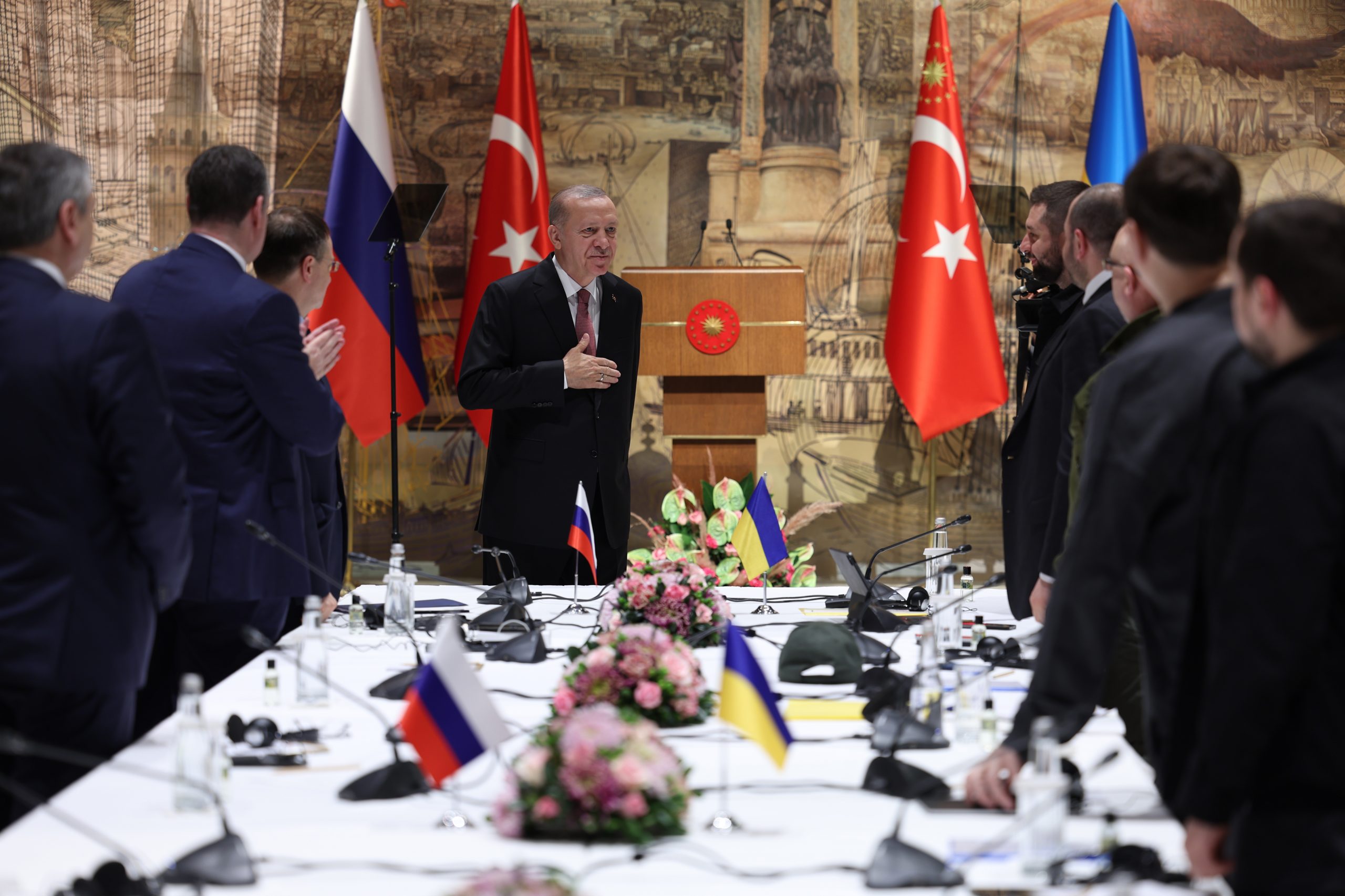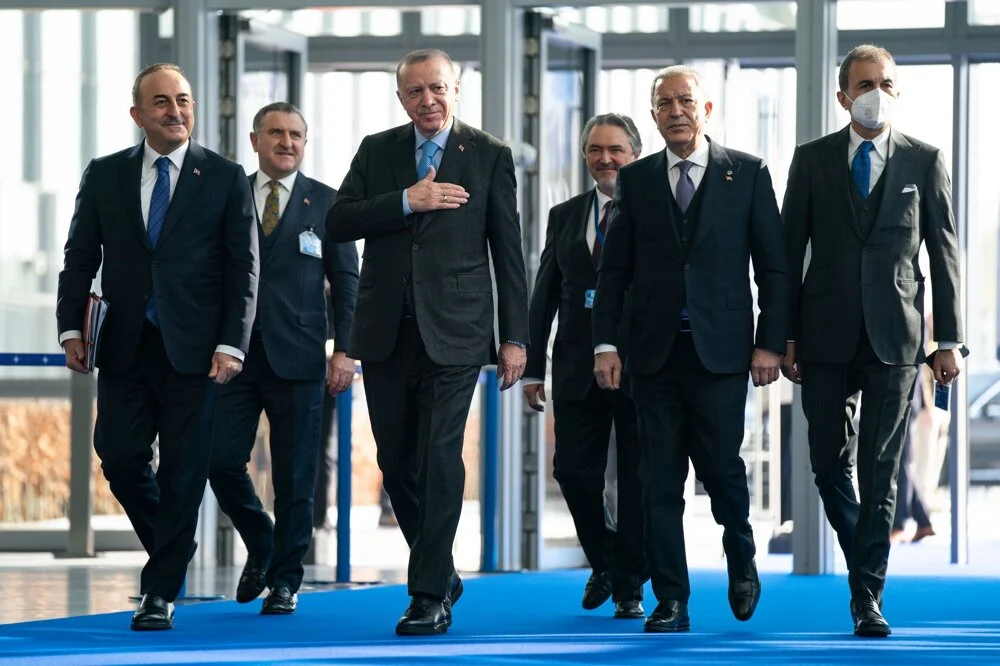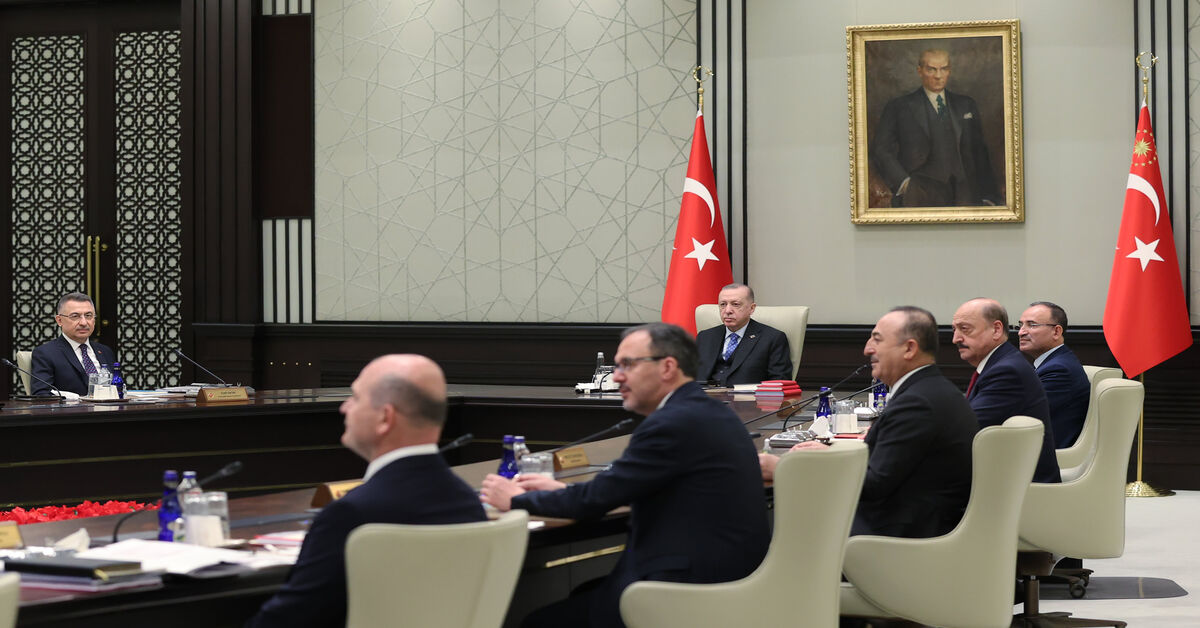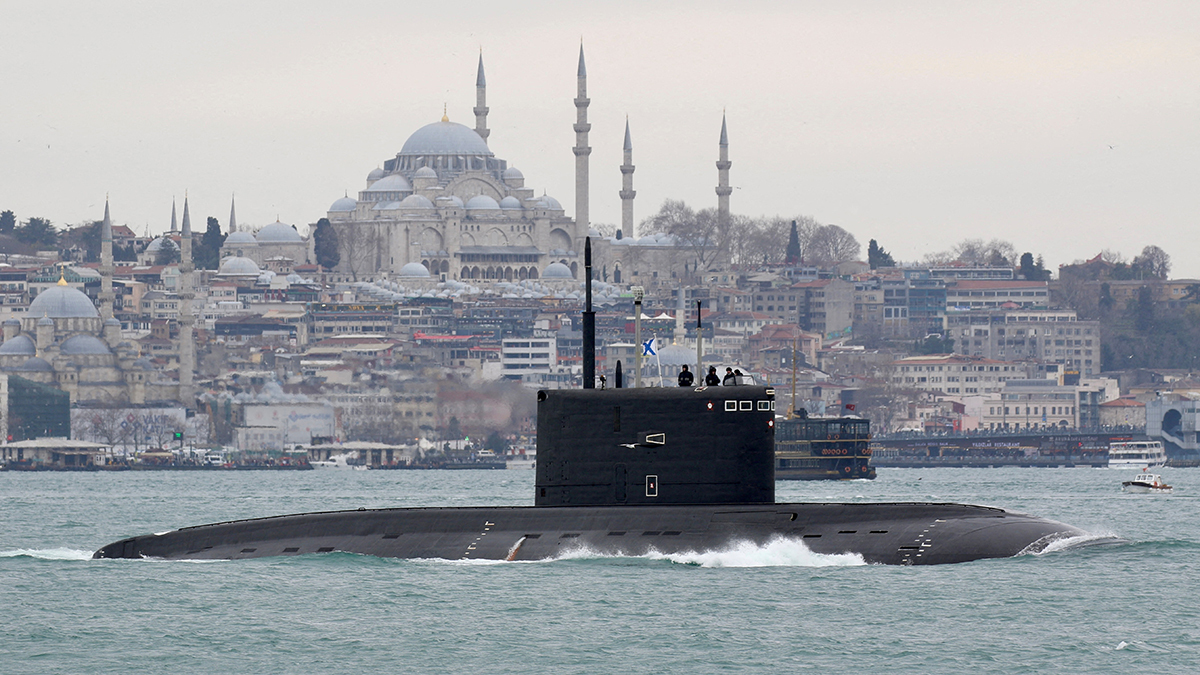This Is How Turkiye Emerged as Winner of the Mediation Between Ukraine & Russia

Since the start of the war in Ukraine, many countries have rushed to act as mediators between Russia and Ukraine. However, Turkiye is the country that was able to bring the two sides together at the negotiating table. How could Turkish diplomacy do that? And what would be its implications on Turkish foreign relations?
The Guardian published a report stating that among all countries seeking to act as mediators in the Russia–Ukraine war, “Turkiye has emerged as the winner.” A fact that may increase the stature of Turkish diplomacy, even though the talks at this stage do not seem to reveal any positive outcome.
The newspaper described Turkiye’s position as “curious.” As a NATO member, Turkiye continues to supply weapons to Ukraine, but refuses to impose sanctions on Russia. “Yet, Turkiye is apparently respected enough by both sides to host Tuesday’s talks,” The Guardian added.
The foreign minister, Mevlut Cavusoglu, explained that Turkiye’s best interests lay in pursuing a balanced foreign policy.
Ibrahim Kalin, the adviser and spokesperson of the Turkish president, Recep Tayyip Erdogan, said the Ukraine war was unjustified, Nevertheless Russia need to be heard, not justified. He added: “We need to talk to Russia. If everybody burns bridges with Russia, who is going to talk to them at the end of the day?”
Curious Position
Zouhair Attouf expert on politics and director of the Maghreb Center for Strategic Studies explained to Al-Estiklal that: “Turkiye's strategic calculations say that a Russian victory over Ukraine will improve Moscow's international and regional position, and this will have serious consequences for Ankara. Russia would be in a better position to pressure Ankara when needed and could threaten it in the Black Sea and undermine its gains in the Caucasus, Central Asia, Syria and North Africa.”
On the other hand, the researcher added, a major Russian defeat in Ukraine will not necessarily be beneficial to Ankara. As Turkiye may then lose the bargaining chip and/or balance with the West, which means that the room for maneuver available to it will shrink, and that its position will be critical in the face of any future Western pressures.
Ali Hussein Bakir, a researcher at the Ibn Khaldoun Center, wrote in an article for Al-Arabi 21 that Turkiye pushed for mediation since the beginning of the crisis. It refused to join the Western sanctions against Moscow, but it used its right to restrict the Russian military movement through the Turkish straits towards the Black Sea based on what the Montreux Convention allows it.
Turkiye also sent more combat marches to Ukraine, which made a difference in the confrontation between Moscow and Kiev and greatly increased the size of the Russian human and military losses.
Hussein Bakir added: “These steps confirm that Turkiye is not a mere vassal of the West. It has accounts that may be different, and that everyone should consider and respect its interests.”
On the other hand, this policy allowed Turkiye to maintain a reasonable distance from Russia and avoid the repercussions of imposing any possible sanctions on it, and it allowed to keep hope that Turkiye would play a positive role as mediator in the crisis.
Potential benefits
Steven Cook, a prominent columnist for Foreign Policy magazine, wrote an article, about Turkiye's role in the Ukrainian crisis, listing the potential benefits of its mediation, stressing that Russia's invasion of Ukraine presented an opportunity for Turkiye.
Cook explained that Putin is not known to accept the advice of others, but Erdogan is in a better position than others to play this role. As a charismatic figure, a strong man, and someone with whom cooperation - even in the face of deep political differences - seems possible. The two men have done business before. Erdogan is the leader of an important country in NATO, and thus a bridge to Washington and Brussels.
Will this end the Russian war on Ukraine? Cook asks. It's hard for Putin to declare victory and go home now, but Erdogan could be instrumental in efforts to create humanitarian corridors and provide basic relief to Ukrainians.
Cook emphasized that these are easier things to say than to do, but no country seems to be in a better position than Turkiye to try. The round of talks that ended in Istanbul last week held hope for a ceasefire, which could provide much-needed relief to embattled Ukrainians.
The Foreign Policy columnist added that whether this cease-fire is achieved or not the good news for Erdogan is that he does not need to succeed in this role to restore and reinforce the idea that Turkiye can be a constructive player in Europe, the Middle East and the eastern Mediterranean.
Strange though this may be, Turkiye's decision to purchase the S-400s and what that means for Ankara-Moscow relations—if Erdogan plays it right—could be a decisive factor in Turkiye's return to power and prestige, Cook concluded.
Turkiye-Western Relations
The policy pursued by Turkish President Recep Tayyip Erdogan regarding the Ukraine crisis has been very popular in Western capitals, according to Foreign Policy magazine.
Recently, Ankara witnessed an active diplomatic movement, most notably the visits of the leaders of Germany, Greece and the Netherlands. Italian Prime Minister Mario Draghi announced that his country decided with France and Turkiye to re-work the cooperation platform between the three countries and meet soon.
Turkish writer Burhanuddin Duran, in a report on the Turkish Sabah newspaper, stated that Turkiye is facing a strategic shift in Turkish-Western relations, but the question that arises is about the expectations that the current atmosphere may bring and the tangible outcomes that it will produce.
He added that there is a tendency to lift the sanctions imposed on the Turkish defense industries, to return to the tripartite talks between France, Italy and Turkiye, and the emergence of the role of Ankara and the Eastern Mediterranean in the issue of supplying natural gas to Europe.
He pointed out that the process of softening the atmosphere between Erdogan and Macron, who is going to elections next April, indicates signs of opening a new page with France.
Briefly, Turkiye is aware that the Ukraine war will have repercussions not just for Russia and Ukraine, but for all the world.
Ibrahim Kalin summarized this idea by saying: “Once this is all over, there will have to be a new security architecture to emerge globally. How that global security architecture will be structured will shape the course of events for decades to come. Every step we take, every move we make to bring an end to this war will have an impact on that new security architecture.”














